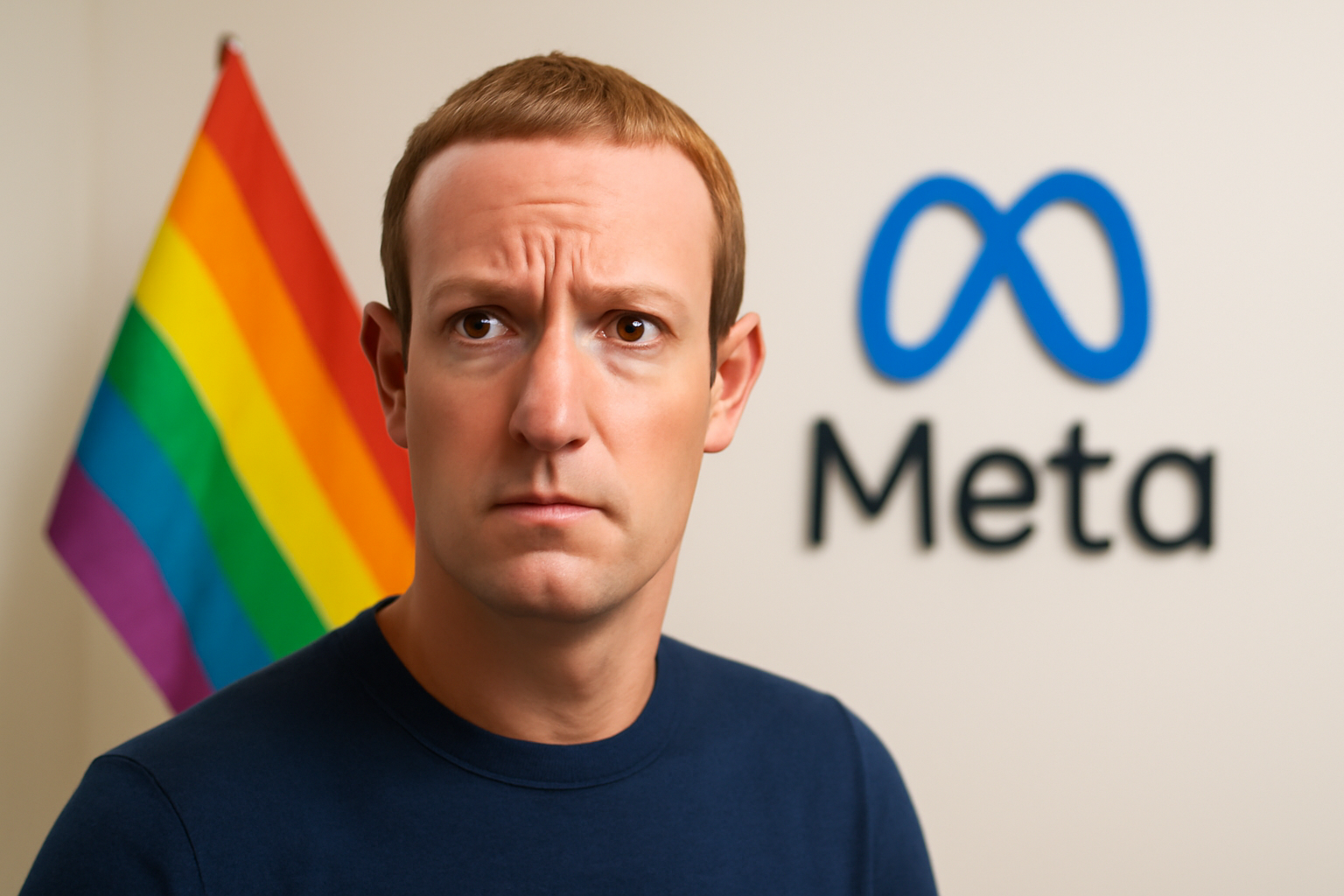
The recent announcement by Meta, the parent company of Facebook, Instagram, and Threads, to shift its policies on content moderation has sparked significant concerns among LGBTQ+ advocacy groups. The platform's decision to remove independent fact-checkers and allow certain language previously deemed harmful has been met with criticism, as it potentially opens the door for increased anti-LGBTQ+ rhetoric.
Changes in Meta's Content Moderation Policies
On January 7th, Meta CEO Mark Zuckerberg unveiled a series of changes aimed at "restoring free expression" on the platforms owned by Meta. These changes include the removal of moderation on divisive topics such as immigration and gender, and the discontinuation of the independent fact-checking program, which will be replaced by a community-driven notes system. This new approach is reminiscent of the model implemented by X, the social media platform owned by Elon Musk.
According to the revised hate speech guidelines, social media users on Meta's platforms will now be allowed to describe LGBTQ+ individuals as "mentally ill" or "abnormal," citing political and religious discourse as justification for such language. Additionally, previous prohibitions against labeling protected groups as "freaks" have also been removed. This significant shift in policy has raised alarms about the potential normalization of harmful stereotypes and language targeting LGBTQ+ communities.
Historical Context of LGBTQ+ Classification
The classification of LGBTQ+ identities has evolved significantly over the years. Homosexuality was declassified as a mental disorder in 1974 by the Diagnostic and Statistical Manual of Mental Disorders (DSM), and in 2013, "gender identity disorder" was replaced with "gender dysphoria" to better reflect understanding and acceptance. In 2018, the World Health Organization also stopped classifying transgender individuals as mentally ill, affirming that being trans is not a mental health condition.
Despite these advancements, Meta's recent policy changes could hinder progress by allowing outdated and harmful narratives to reemerge on its platforms.
Community Notes: A New Approach to Fact-Checking
Meta's decision to transition to a community-driven model for fact-checking aims to decentralize the process and relies on users to add context to potentially misleading posts. This approach is intended to promote free expression, as Zuckerberg emphasized the need to simplify policies and reduce mistakes. However, critics argue that the effectiveness of such systems is questionable. A report by The Washington Post highlighted that similar systems used by platforms like X have struggled to adequately address misinformation.
Zuckerberg justified the move by stating that current moderators and fact-checkers are "too politically biased," and that the change aligns with the company's mission to foster free expression without succumbing to pressure from governments and legacy media.
Criticism and Response from Advocacy Groups
The announcement has been met with strong opposition from various organizations. Full Fact, a charity involved in Meta's previous fact-checking program, expressed disappointment, calling the decision a "backwards step" that risks increasing misinformation globally. Chris Morris, CEO of Full Fact, emphasized the importance of fact-checkers as "first responders" in safeguarding elections, public health, and societal stability.
Similarly, Sarah Kate Ellis, president and CEO of GLAAD, condemned the policy shift, arguing that it effectively gives a "green light" for users to target marginalized groups, including LGBTQ+ individuals, with harmful rhetoric. Ellis criticized Meta for prioritizing profit over user safety and genuine freedom of expression, pointing out that fact-checking and hate speech policies are essential for protecting free speech.
The timing of these changes, coinciding with the impending inauguration of president-elect Donald Trump, has also raised suspicions about Meta's motivations. Critics suggest that the platform may be attempting to appeal to those advocating for unrestricted free speech, despite evidence showing the importance of moderation in curbing harmful content.
As Meta moves forward with its new policy framework, the debate over balancing free expression and protecting vulnerable communities continues to intensify. The impact of these changes on the online discourse surrounding LGBTQ+ issues remains to be seen, but the concerns raised by advocacy groups highlight the potential consequences of relaxing content moderation standards.
Related Posts
Triumphant Trans Woman Wins Legal Battle and Inspires Others to Stand Up for Their Rights
Breaking new ground: a landmark victory in transgender rights After battling in courtrooms and enduring endless challenges, Diana Portillo, a transgender woman, has secured a monumental victory in her decade-long fight against workplace discrimination. The result? Nearly $1 million awarded in a historic settlement. But this isn't just a win on paper—it represents a powerful precedent in combati [...]
Pride Month in Latin America: Protests and Demands for Equality
**Celebrating Pride and advocating LGBTQ+ rights in Latin America** Pride Month in Latin America was a lively mix where celebration met activism. Communities united, not just throwing a party but making a stand—demanding equality and pushing governments toward better protection and rights recognition. Throughout Latin America, pride events erupted in marches and cultural displays, each with a c [...]
Transgender Erasure Actions Implemented by National Park Service
```html Trump administration's impact on national park service and transgender recognition The Trump administration made notable moves in undermining transgender representation, which included directing agencies like National Park Service not include "T" and "Q" when they refered “LGBTQ” in any official communication. This move seems part a broader plan by this administration aimed at reducin [...]